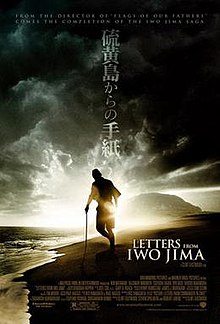
The Bible tells us that men, curious to reach heaven and meet God, began construction on a tower tall enough to reach Him. When God saw this tower He realized that humanity had gotten out of His control, and that men were capable of achieving anything. To counteract this, He broke down their means of communication by abolishing their universal language, thus explaining the diversity in the peoples that populate the world today.
The point of this story of the tower of Babel is that we all think in separate languages, and can only understand each other if we share a common language. Language is a interesting issue in films – should you watch a foreign movie with subtitles, or overdubbed with English voices? Should a director have their characters all speaking in English, possibly with an accent that identifies their country? In the James Bond film From Russia with Love all the characters speak English, despite the fact that the villains are Russian and the film is centered in Turkey. It takes you out of the film somewhat – it would have been much more interesting to have the hero and villain not able to understand each other. However, it is not easy making films in other languages. New screenwriters have to be brought in, bilingual actors have to be used, and often times the director cannot be certain of what he is directing. All of this is often taken for granted by audiences, who do not give the languages spoken a second though. Language often becomes a character itself in films, and I would like to explore a few examples.

World War II was the last war America fought where the enemy looked like us. Most Allied soldiers could pass for Germans, and if they knew German and were given Nazi uniforms, they might even fool the Nazis themselves. That is exactly a key plot point in a movie that I seem to be constantly using as an example, Inglourious Basterds . In this film three of the Basterds dress up like Germans in occupied France, they meet in an underground bar, and have a drink with a German officer. He is suspicious because he does not recognize their accents, and his suspicions are confirmed when they count three by using their middle three fingers instead of their thumb and first two. Here, the authentic use of language is incredibly important – having the characters speaking English would not have worked at all. The importance of language is a major theme in the movie – in the beginning, Hans Landa speaks in English because he knows the Jews hiding in the house can only speak in French, and he wants them to be lulled into a false sense of security. German and French actors were brought in to fill these roles, to make this use of language even more natural and authentic.

Obviously, the enemy only looked like us in the Europe. In 2006, Clint Eastwood directed two films that depicted the Battle of Iwo Jima, from both the American and the Japanese perspective. Despite the fact that he doesn’t speak the language, the film Letters from Iwo Jima is entirely in Japanese. Using a cast of Japanese actors, Letters shows the brutal Japanese military defending the island until their last soldier was defeated. Surrender was never an option – the Japanese government knew the battle was unwinnable, but was looking to draw the end out as long as possible in the hopes that the United States would lose morale. Language helps to illustrate the differences between these nations and to further differentiate between the two films, and having them both speak English would have undermined these differences.
Then, inevitably, there are the exceptions. Not every movie has to be in the language of its country – after all, when we read Dostoevsky or Tolstoy, we read English translations, not Russian. Watching Stanley Kubrick’s Paths of Glory is like watching an English translation, we don’t mind that it is in English and do not expect the characters to adopt French accents. The villains in the French military speak with English accents, and the rest of the army speaks in American accents – the only other language spoken is a song sung in German by a prisoner at the end of the movie. Putting the movie in French would have added nothing to the movie, so we accept it as it is and move on.

Comments
Post a Comment